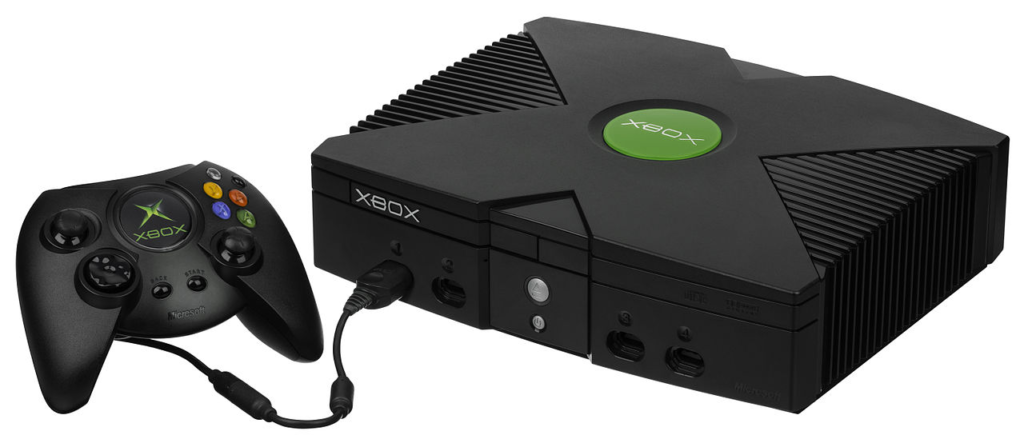
The Xbox brand has become synonymous with gaming, shaping the entertainment landscape since its inception. With a legacy spanning over two decades, Xbox has continually evolved, embracing technological advancements and consumer demands to deliver immersive gaming experiences. From its groundbreaking consoles to an expansive online gaming network, Xbox has redefined what it means to be a gamer.
Table of contents
- 1. The Birth of Xbox: A New Contender in Gaming
- 2. Xbox Consoles: A Timeline of Innovation
- 3. Game Pass: Redefining Game Access and Ownership
- 4. Building a Global Gaming Community
- 5. Cloud Gaming: A New Frontier
- 6. Diverse Game Library: From Halo to Indie Titles
- 7. The Future of Gaming: Xbox’s Vision and Strategy
- 8. Challenges and Controversies
- 9. Conclusion: Xbox’s Lasting Impact on Gaming Culture
1. The Birth of Xbox: A New Contender in Gaming

Microsoft entered the gaming arena in 2001 with the launch of the original Xbox. The company aimed to compete with established brands like Sony and Nintendo, and its strategy focused on leveraging Microsoft’s technological expertise. The Xbox introduced gamers to groundbreaking features, including an integrated hard drive and online multiplayer capabilities, setting it apart from competitors.
Key Milestone: The release of “Halo: Combat Evolved” alongside the original Xbox was a game-changer. This first-person shooter not only showcased the console’s capabilities but also laid the foundation for one of gaming’s most iconic franchises.
2. Xbox Consoles: A Timeline of Innovation
Since its debut, the Xbox family has expanded through various iterations, each pushing the envelope in gaming technology:
- Xbox (2001): The original console, with its powerful hardware and online multiplayer capabilities.
- Xbox 360 (2005): Introduced HD graphics, a refined online experience with Xbox Live, and the popular Kinect motion-sensing peripheral.
- Xbox One (2013): Focused on being an all-in-one entertainment system with a robust library of games and backward compatibility with Xbox 360 titles.
- Xbox Series X and Series S (2020): The latest generation features cutting-edge technology, including 4K resolution support, faster load times, and an emphasis on cloud gaming.
Legacy of Innovation: Each console generation has introduced new technologies and features, continuously enhancing the gaming experience and adapting to player needs.
3. Game Pass: Redefining Game Access and Ownership
Launched in 2017, Xbox Game Pass has revolutionized how gamers access and enjoy titles. With a subscription model, players gain access to a vast library of games for a monthly fee. This service has made gaming more accessible, allowing players to try a variety of titles without committing to full purchases.
Impact on Gaming: Game Pass not only provides an economical option for gamers but also promotes indie developers and lesser-known titles, giving them a platform to reach wider audiences.
4. Building a Global Gaming Community
Since its launch in 2002, Xbox Live has been a cornerstone of the Xbox experience, enabling gamers to connect, compete, and collaborate. The service has evolved over the years, offering features like party chat, game sharing, and a robust online multiplayer system.
Community Engagement: Xbox Live has fostered a vibrant gaming community, with players forming friendships, joining clans, and participating in events that bring people together, regardless of geographical boundaries.
5. Cloud Gaming: A New Frontier
As gaming technology advances, Microsoft has embraced cloud gaming through Xbox Cloud Gaming (formerly Project xCloud). This service allows players to stream games on various devices, including smartphones and tablets, without the need for high-end hardware.
Benefits of Cloud Gaming: Xbox Cloud Gaming enhances accessibility, enabling gamers to enjoy their favorite titles on the go, and opens up gaming to those who may not own a console or gaming PC.
6. Diverse Game Library: From Halo to Indie Titles
The strength of the Xbox brand lies in its diverse library of games. From blockbuster franchises like Halo, Gears of War, and Forza Motorsport to indie gems, Xbox offers something for every type of gamer. The commitment to acquiring studios, such as Bethesda, further expands this library, promising exciting new titles for the future.
Inclusive Gaming: Xbox emphasizes inclusivity by offering games for diverse audiences, including family-friendly titles and those with complex narratives.
7. The Future of Gaming: Xbox’s Vision and Strategy
Looking ahead, Xbox is dedicated to enhancing the gaming experience through innovation and collaboration. Focusing on cloud gaming, subscriptions, and partnerships, Microsoft is positioning Xbox as a leader in the changing gaming landscape.
Emerging Technologies: The integration of AI and machine learning, alongside improvements in hardware, will continue to shape the future of gaming, allowing for more immersive and dynamic experiences.
8. Challenges and Controversies
Despite its success, Xbox has faced challenges and controversies throughout its history. From the early Xbox Live outage to exclusivity and game ownership discussions, the brand has faced its share of hurdles.
Lessons Learned: These challenges led Microsoft to engage with its community, adapt strategies, and reinforce its commitment to fair gaming.
9. Conclusion: Xbox’s Lasting Impact on Gaming Culture
The Xbox brand has made an indelible mark on the gaming industry, influencing everything from technology to community engagement. As it continues to innovate and evolve, Xbox remains committed to creating exceptional gaming experiences for players around the globe.
This comprehensive exploration of Xbox showcases its journey, innovations, and impact on gaming culture, illustrating how it has shaped the experiences of millions of gamers worldwide.

